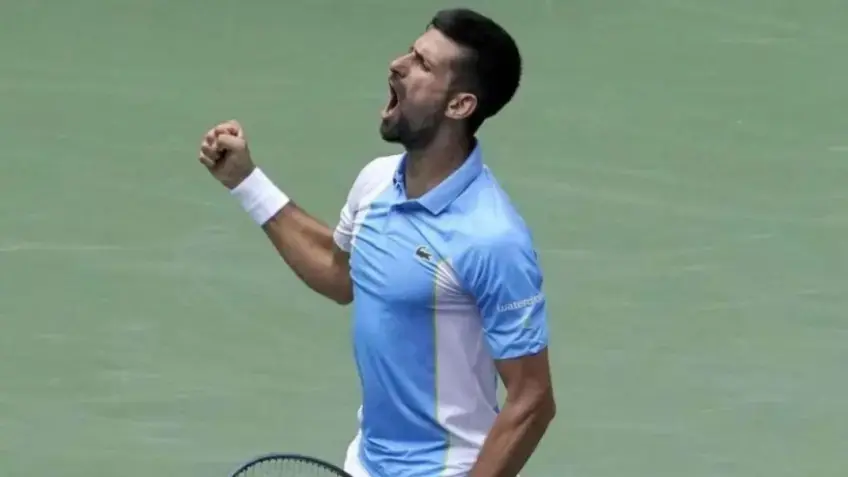
Vasek Pospisil, the Canadian tennis veteran and co-founder of the Professional Tennis Players Association (PTPA), has publicly expressed his surprise and frustration with recent comments made by his long-time ally, Novak Djokovic, regarding a high-profile lawsuit against tennis’ governing bodies. The legal action, launched during the 2025 Miami Open, targets the ATP, WTA, International Tennis Federation (ITF), and International Tennis Integrity Agency (ITIA), accusing them of operating as a “cartel” that suppresses player earnings and welfare. Pospisil’s candid reaction has ignited speculation about a rift between the two players, who have championed player rights together for over six years, raising questions about the future of their shared mission.
The PTPA, established by Pospisil and Djokovic in 2020, aims to give players a stronger voice in a sport where they often feel marginalized by powerful governing bodies. The lawsuit, filed in a New York federal court, demands reforms to the ranking system, a more sustainable tournament calendar, and fairer prize money distribution. With 11 plaintiffs, including notable names like Nick Kyrgios and Sorana Cirstea, the 163-page complaint alleges systemic abuse and anti-competitive practices. Yet, Djokovic’s absence from the list of named plaintiffs caught many off guard, especially after he admitted to having mixed feelings about the legal action. “For being honest with you, there are some things I agree with, and there are some things I don’t agree with,” Djokovic said at the Miami Open, explaining his decision not to sign the complaint personally.
Pospisil, speaking openly, didn’t hide his shock. “I was speechless when I heard what he had said,” he remarked, noting that Djokovic’s public stance seemed at odds with their prior discussions. According to Pospisil, Djokovic was deeply involved in the lawsuit’s planning, receiving updates through his agent well in advance. “He was very much part of the process, getting updated,” Pospisil emphasized, suggesting that Djokovic’s reservations were unexpected given their shared commitment to the PTPA’s goals. The Canadian clarified that Djokovic preferred to frame the lawsuit as a collective effort rather than a personal crusade, stating, “I think his position is that he didn’t want to make this about him, he wanted to make this about the wider group of players and the much-needed change in tennis.”
This isn’t the first time Pospisil and Djokovic have faced scrutiny for their advocacy. Since founding the PTPA, they’ve pushed for better treatment of lower-ranked players, who often struggle financially despite tennis’ billion-dollar revenue. Pospisil, a former world No. 25 and Wimbledon doubles champion, has been vocal about the sport’s inequities, drawing from personal experience. “I’m one of the more fortunate players, and I’ve still had to sleep in my car when traveling to matches early in my career,” he said, highlighting the absurdity of such conditions compared to other major sports. Djokovic, with 24 Grand Slam titles, has echoed these concerns, once noting, “We need a system where players have a voice and can negotiate for their rights like athletes in other major sports.”
The lawsuit marks a bold escalation in the PTPA’s battle, but Djokovic’s nuanced stance has complicated the narrative. While he remains a co-founder and supporter, his reluctance to fully endorse the legal action has fueled debate. Some see it as a strategic move to avoid alienating tour officials, especially as he continues to compete at 37, with a strong showing at the 2025 Monte Carlo Masters, where he reached the semifinals before falling to Alejandro Tabilo. Others, including Pospisil, seem perplexed by the disconnect. “It didn’t align with our previous conversations,” Pospisil admitted, hinting at underlying tensions.
As the tennis world awaits the lawsuit’s outcome, the dynamic between Pospisil and Djokovic remains under scrutiny. Their shared vision for a fairer sport has driven meaningful dialogue, but this public disagreement could test their partnership. Pospisil, undeterred, views the legal action as a step toward lasting change. “The governing bodies force us into unfair contracts, impose inhumane schedules, and punish us for speaking out,” he said, framing the fight as one for future generations. Whether Djokovic will fully align with this stance or maintain his cautious approach, the PTPA’s push for reform is reshaping the conversation around player rights, with Pospisil at its forefront.
Leave a Reply